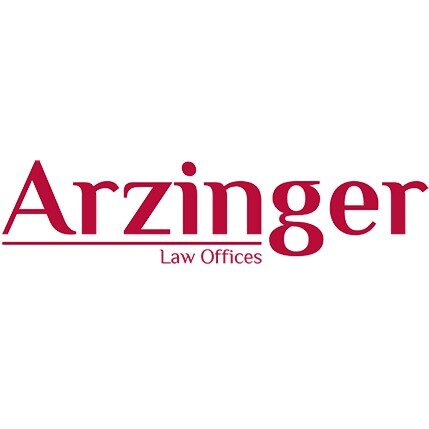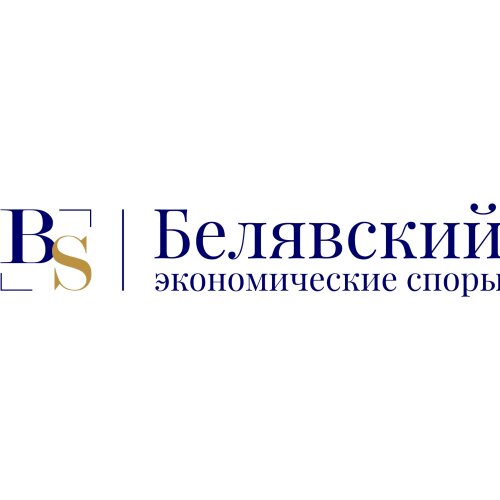Best Art & Cultural Property Law Lawyers in Belarus
Share your needs with us, get contacted by law firms.
Free. Takes 2 min.
Or refine your search by selecting a city:
List of the best lawyers in Belarus
About Art & Cultural Property Law in Belarus
Art & Cultural Property Law in Belarus is a specialized field that deals with the protection, ownership, and regulation of art and cultural heritage. This area of law is critical in preserving Belarus's rich cultural legacy, ensuring that artistic works and cultural artifacts are maintained, legally traded, and appropriately attributed. The law covers a wide range of issues including copyright, provenance, the illicit trade of cultural artifacts, and the repatriation of stolen art. The legal framework is primarily guided by local legislation which aligns with international conventions to protect cultural property.
Why You May Need a Lawyer
There are various scenarios where obtaining legal assistance in Art & Cultural Property Law may be beneficial:
- Acquiring or selling artworks or artifacts and needing to ensure authenticity and legal ownership.
- Resolving inheritance issues related to art collections or cultural items.
- Facing or pursuing litigation regarding copyright infringement for artworks.
- Dealing with cases of stolen or looted art, including issues of restitution and repatriation.
- Navigating complex regulations and paperwork when exporting or importing cultural goods.
- Advising museums or galleries on legal compliance and acquisition policies.
- Seeking legal counsel regarding donations or loans of cultural property to institutions.
Local Laws Overview
Belarus has developed a comprehensive legal framework that governs the protection and trade of art and cultural property. Key aspects include:
- Cultural Heritage Protection: National laws are in place to safeguard historical monuments, artworks, and cultural artifacts. The state plays an active role in ensuring the preservation and restoration of national heritage sites.
- Intellectual Property Rights: Copyright laws protect the creators of original artworks, ensuring they have exclusive rights to their creations, including reproduction and distribution.
- Import and Export Regulations: Strict measures regulate the movement of cultural goods across borders, requiring appropriate documentation and permits to prevent illegal trafficking.
- International Conventions: Belarus is a signatory to international treaties such as the UNESCO Convention on the Means of Prohibiting and Preventing the Illicit Import, Export, and Transfer of Ownership of Cultural Property, which guide its local laws.
Frequently Asked Questions
What constitutes cultural property under Belarusian law?
Cultural property in Belarus typically includes artifacts, artworks, architectural monuments, and sites of historical or archaeological significance that are deemed valuable for the nation's cultural heritage.
How do I verify the authenticity of an artwork?
Verification can be done through provenance research, expert authentication, and consulting databases of stolen art if there are concerns about the item's history.
What steps should I take if I find a historical artifact?
If you discover a historical artifact, you are legally required to report it to the relevant heritage authorities, as the state holds ownership of undiscovered cultural heritage.
Can artworks be used as collateral in Belarus?
Yes, artworks can be used as collateral, but a professional appraisal must be conducted, and it’s advised to consult with legal experts to handle the transaction legally and efficiently.
How can illicit trafficking of artworks be prevented?
Ensure proper documentation and provenance checks when dealing in cultural property, and report suspicious activities to authorities specialized in art and cultural property crimes.
What recourse is available if culturally sensitive artworks are copied without permission?
Legal recourse includes filing a lawsuit for copyright infringement, seeking damages, or obtaining an injunction to stop further unauthorized use.
Are there residency requirements for owning cultural property in Belarus?
No, there are no residency requirements for owning cultural property, but international buyers must adhere to local and international regulations on cultural goods trade.
What is the process for lending cultural property to a museum?
The process involves legal agreements detailing the terms of the loan, insurance, and responsibilities for transport and display, often requiring legal advice.
How does repatriation of stolen cultural artifacts work?
Repatriation involves diplomatic negotiations, legal proceedings, and adherence to international conventions. Cooperation with international bodies and local authorities is often necessary.
Is it possible to register a private art collection in Belarus?
Yes, private individuals can register their art collections, which may provide benefits, such as tax exemptions. Consulting legal professionals for advice on the procedure is recommended.
Additional Resources
If you need further assistance or information on Art & Cultural Property Law in Belarus, consider the following resources:
- Ministry of Culture of the Republic of Belarus: The main government body responsible for cultural heritage protection and policy-making.
- Intellectual Property Agency of Belarus: Provides guidance on copyright and intellectual property rights relevant to artworks.
- Belarusian State Museum of the History of the Great Patriotic War: Offers resources and expertise in historical artifact conservation and protection.
- International Council of Museums (ICOM) Belarus: Provides a network for museum professionals focusing on the protection of cultural heritage.
Next Steps
If you require legal assistance in the field of Art & Cultural Property Law in Belarus, consider taking the following steps:
- Consult a specialized lawyer experienced in art and cultural heritage law for personalized advice and representation.
- Gather all relevant documentation pertaining to your case, such as provenance records, purchase agreements, and any previous legal correspondences.
- Ensure that you are aware of deadlines and obligations for any legal processes to avoid complications.
- Reach out to relevant governmental bodies or cultural institutions for guidance or potential support.
- Consider joining professional associations relevant to art and cultural heritage for additional networking and resources.
Lawzana helps you find the best lawyers and law firms in Belarus through a curated and pre-screened list of qualified legal professionals. Our platform offers rankings and detailed profiles of attorneys and law firms, allowing you to compare based on practice areas, including Art & Cultural Property Law, experience, and client feedback.
Each profile includes a description of the firm's areas of practice, client reviews, team members and partners, year of establishment, spoken languages, office locations, contact information, social media presence, and any published articles or resources. Most firms on our platform speak English and are experienced in both local and international legal matters.
Get a quote from top-rated law firms in Belarus — quickly, securely, and without unnecessary hassle.
Disclaimer:
The information provided on this page is for general informational purposes only and does not constitute legal advice. While we strive to ensure the accuracy and relevance of the content, legal information may change over time, and interpretations of the law can vary. You should always consult with a qualified legal professional for advice specific to your situation.
We disclaim all liability for actions taken or not taken based on the content of this page. If you believe any information is incorrect or outdated, please contact us, and we will review and update it where appropriate.
Browse art & cultural property law law firms by city in Belarus
Refine your search by selecting a city.











